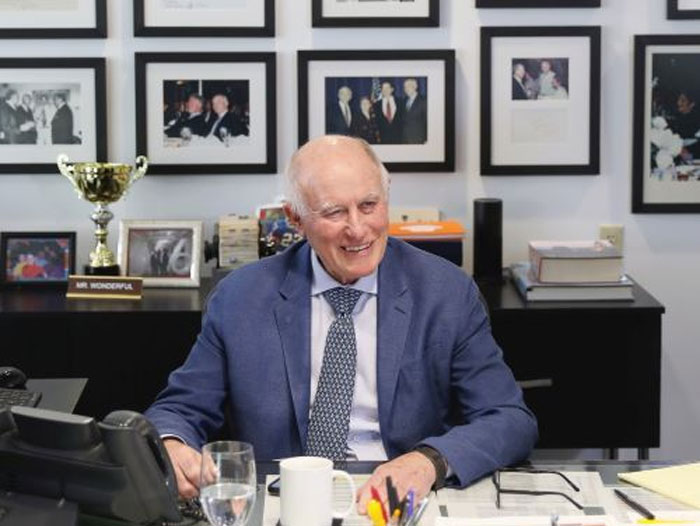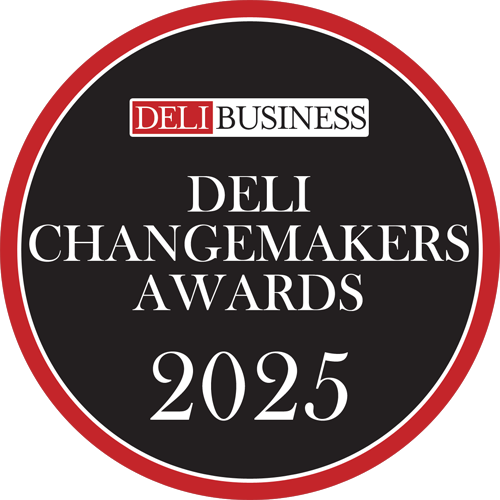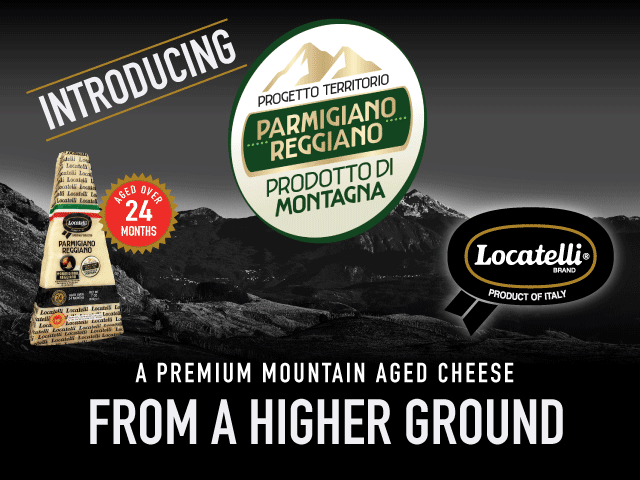2024 Lifetime Achievement Award Winner: George Gellert, Atalanta Corporation
May 9, 2024 | 3 min to read
George Gellert has built one of the largest specialty food companies, now known as Atalanta Corp., with over $1 billion in annual sales. Beginning his career in 1965, he expanded the company from a limited importer to offering over 6,000 food items from more than 60 countries. Celebrated for his relationship-building skills, Gellert actively manages the business, emphasizing innovation and adaptation to customer needs. Recently, Atalanta has made significant acquisitions, continuing its growth trajectory.

George Gellert has spent nearly six decades working in specialty foods, building one of the largest, most diverse companies in the industry.
After graduating from Cornell University in 1963 with three degrees, followed by a short career in the military, Gellert went to work for his father-in-law in 1965 at what was then called the Atalanta Trading Corp.
“It was a tremendous opportunity for me to use my education, my legal skills and my family’s agricultural background,” Gellert, who grew up on a family farm in upstate New York, said in an interview with NJBIZ.com
At the time, Atalanta was an importer of a limited number of products, primarily canned hams and cheese. Through a series of acquisitions, investments, and widespread product-expansion initiatives through the years, Gellert has grown the business tenfold, to more than $1 billion in annual sales. Today, Atalanta imports more than 6,000 different food items sourced from its partners in more than 60 countries.
Gellert became a vice president in 1969, was named president in 1973, and chairman of the board in 1980. He was named to the SFA Hall of Fame in 2016.
Atalanta Corp., as it is now called, remains the largest privately owned food importer in North America.
Gellert has long been known for its bold moves on the global food stage, including becoming one of the first businessmen who was invited to trade with China in the 1970s. He also served as the vice chair of the United States-Romanian Economic Council, and as the director of the East-West Trade Council.
Among his greatest strengths has been his ability to forge lasting relationships, said his son, Tom Gellert, who is president of the company and continues to manage the business with his siblings and George Gellert’s brother.
“He’s built so many connections with so many people,” said Tom Gellert. “He’s built strong relationships with the banking community, and strong relationships with customers and with employees.”
George Gellert still makes personal phone calls to many of the company’s employees—some of whom have worked there for decades—to wish them a happy birthday.
As an importer, Atalanta is a service provider, Tom Gellert said, and maintaining meaningful relationships with suppliers has been critical.
“His ability to make relationships has really been at the heart of the success of our company,” he said.
George Gellert, who recently celebrated his 86th birthday, also remains active in managing the business, and is especially involved in areas such as finance and real estate, along with ancillary businesses he has cultivated through the years. His family’s Gellert Global Group portfolio includes several food businesses operating under other brand names.
The significant specialty food company acquisitions made over years included DeMedici, an importer of olive oil and other products from Italy, which became part of Gellert Global Group in 2007 and joined Atalanta in 2015; ANCO Fine Cheese, which Atalanta acquired in 2018, and Swiss Chalet Fine Foods, which became part of the company’s holdings in 2019. In just the past year, the company has announced three additional acquisitions: J.A. Kirsch, an importer of canned seafood and specialty shelf-stable products; Mt. Vikos, known for authentic Greek Feta and spreads, and Sonoma Cheese, known as being the creator of the original Pepper Jack cheese.
George Gellert has always tried not to limit the company’s potential by putting up too many guard rails, Tom Gellert said.
“He has always just looked at every opportunity out there,” he said. “It’s just in his DNA to be very open-minded and look at everything as a potential opportunity, and he has always challenged us, and the organization, to innovate.”
He has also always recognized the need for the organization to continue to change and evolve to meet the demands of customers, or, as the company likes to say, exceed customers’ expectations.
“What made the business successful 30 years ago was very different from what made it successful 15 years ago, and what made it successful then is not what’s going to make us successful today, which is different than what’s going to make us successful tomorrow,” said Tom Gellert. “I think we recognize that, and we don’t rest on our laurels. We have a very competitive nature.”
33 of 140 article in DeliBusiness Spring 2024


